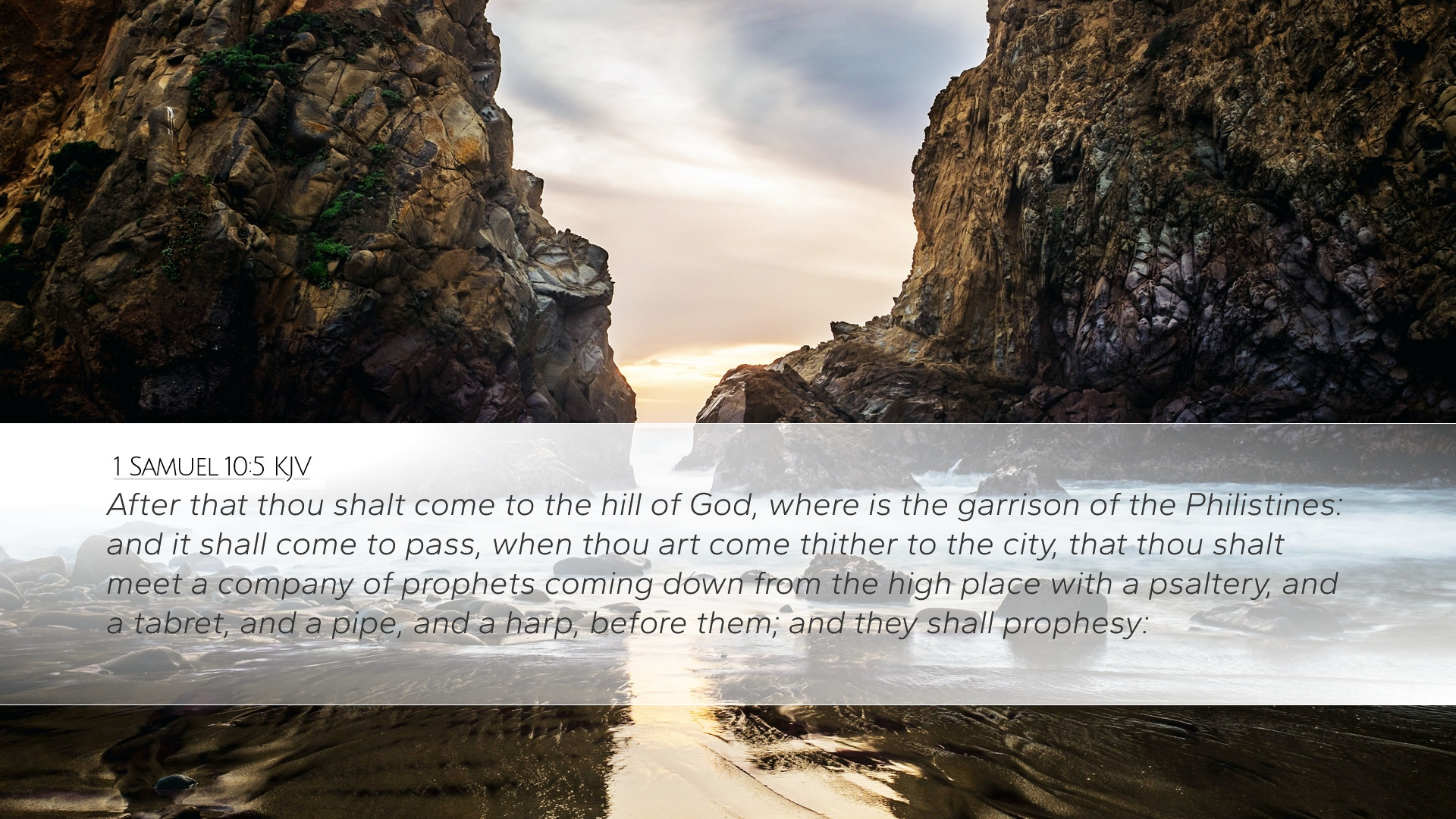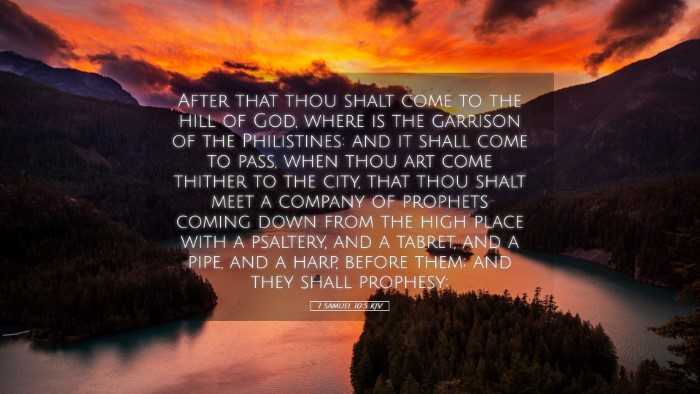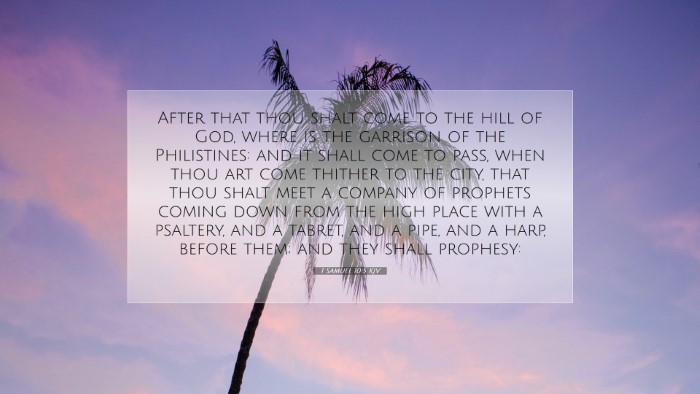Commentary on 1 Samuel 10:5
In 1 Samuel 10:5, we read an important verse that depicts the future role of Saul as king, providing a pivotal moment in the history of Israel's monarchy. This commentary seeks to unpack the theological and historical significance of this verse by examining insights from esteemed public domain commentaries.
Contextual Overview
1 Samuel marks a crucial transition from the period of judges to the establishment of monarchy in Israel. Saul's anointing by Samuel represents God’s chosen response to the Israelite's desire for a king. This moment is prophetic, indicating both the divine endorsement of Saul's future leadership and the role of the prophetic ministry during this transitional period.
The Prophetic Significance
According to Matthew Henry, the prophetic action of Samuel highlights the idea that God is the ultimate sovereign, even in the selection of a king. Samuel's instruction to Saul regarding the events he will encounter serves as a divine revelation that confirms Saul's impending role as king. The verse can be understood as a pivotal instruction that links the divine with temporal authority.
The Events at Gibeah
Albert Barnes elaborates on the phrase "the hill of God" which indicates a location imbued with spiritual significance. Gibeah is not merely a geographic marker; it signifies God’s presence and the divine purpose behind Saul’s kingship. Barnes notes that Saul’s meeting with a band of prophets at this location foreshadows the spiritual authority and responsibility he will need to fulfill as a leader.
Spirit of Prophecy
Adam Clarke emphasizes the importance of the prophets in the life of Saul. He interprets the encounter with the prophets as a critical turning point wherein Saul is filled with the Spirit of God. Clarke's commentary illustrates how the Holy Spirit equips Saul for his task, reinforcing the communal and spiritual elements that undergird the function of kingship in Israel.
The Role of the Holy Spirit
This verse also foreshadows the transformative experience that Saul is about to undergo. The motif of the Spirit coming upon an individual is recurrent in scripture, suggesting a moment of empowerment for leadership. Matthew Henry connects this to the broader biblical theme of God instituting leaders through divine intervention.
Empowerment and Leadership
Albert Barnes further focuses on the empowerment afforded to Saul by the Holy Spirit, which is pivotal for godly leadership. Saul's encounters with the prophets indicate that both divine influence and community support are crucial for his leadership journey. Barnes notes that this empowerment is a sign of the divine presence and guidance that will accompany Saul as he steps into his role as king.
The Implications for Saul's Kingship
As we reflect upon this verse, it becomes evident that the appointment of Saul as king involves both divine approval and a demand for reliance on the Holy Spirit. Adam Clarke warns that while Saul is empowered, he must remain humble and obedient to God’s will. Saul’s future challenges will hinge upon how he responds to this anointing and the Spirit's guidance.
Challenges Ahead
Saul’s kingship foreshadows the complexities that come with authority. Matthew Henry stresses that while Saul is called to lead, his success will depend on his willingness to submit to God, reflecting the broader principle that all leaders are accountable to divine authority. The challenges he will face can serve as a cautionary tale for those in positions of power.
- Obedience to divine guidance
- Maintaining humility and accountability
- Recognizing the need for spiritual empowerment
Theological Reflections
This verse invites rich theological reflection on the nature of leadership, the role of the Holy Spirit, and the significance of prophetic ministry. Albert Barnes articulates that the presence of the Spirit upon Saul illustrates the necessity of divine resources for fulfilling God’s purpose. This view resonates deeply with contemporary pastoral leadership, calling for reliance on the Holy Spirit in ministry contexts.
Conclusions for Contemporary Readers
In conclusion, 1 Samuel 10:5 serves as a foundational text for understanding the nature of God’s call and the complexities of leadership. For pastors, students, and theologians, this passage is not just a historical account; it is a living word that challenges contemporary leaders to embrace their roles with a profound sense of awareness of God’s presence and purpose.
Final Considerations
In light of the insights drawn from respected commentaries, it is imperative that modern readers approach this text with an understanding of its multifaceted nature. The anointing of Saul encapsulates the celebration of divine support for leadership alongside a sober reminder of the responsibilities that come with such a calling.


